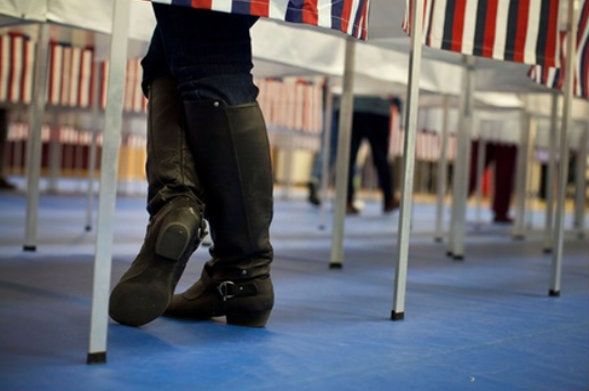Enough about Donald Trump!
Now, let's talk about his voters. The cliche of the day is that Donald Trump was elected by voters who felt they had been "left behind."
This is not quite calling them deplorables, but it is very condescending and betrays the Acela Corridor roots of most of those examining the election in print and on the air.
How about describing them as self-motivated voters who knew what they felt was necessary for the country and kept their lips zipped until it was time to spring their surprise on the world?
Peggy Noonan gets this in her column this morning (bolding mine):
Donald Trump said he had a movement and he did. This is how you know. His presidential campaign was bad—disorganized, unprofessional, chaotic, ad hoc. There was no state-of-the-art get-out-the-vote effort—his voters got themselves out. There was no high-class, high-tech identifying of supporters—they identified themselves.
They weren’t swayed by the barrage of brilliantly produced ads—those ads hardly materialized. This was not a triumph of modern campaign modes and ways. The people did this. As individuals within a movement.
It was a natural, self-driven eruption. Which makes it all the more impressive and moving. And it somehow makes it more beautiful that few saw it coming.
Noonan calls these voters the "unprotected people," who rose up against the onerous rules and regulations, the attempts to shut down industries vital to them, and the lack of respect accorded them by the elites. "Unprotected" sounds passive and perhaps unintentionally condescending, but they certainly weren't passive Tuesday.
On the theme of condescension, I think it was also a key reason that Hillary Clinton isn't bound for 1600 Pennsylvania. Howard Husock captures this over at City Journal ("Im with Smug"):
Beyond the issues that floated to the top of the campaign—Clinton’s “extreme carelessness” and the Clinton Foundation’s masquerading as a charity—there was something bigger: a condescending smugness toward those who didn’t share her views. Only smugness could have led Clinton to declare, with a satisfied smile, that Trump voters could be bunched in that “basket of deplorables.”
That now-famous formulation only hinted at a much deeper disdain for what proved to be a winning electoral coalition. How smug must you be to suggest that nothing’s wrong with taking a knee when the national anthem is played? How much smugger can you get than criticizing a liberal Supreme Court justice for calling such protests “stupid”?
Clinton’s smugness was everywhere. It suggested that there was no reason to criticize, and every reason to tolerate, a campus environment in which speakers are shouted down and disinvited. It told voters that on the great issues of the day—whether and how to cope with climate change, whether and how the government should manage the market for health insurance, whether and how to deal with a potential nuclear Iran—there was really nothing to discuss. The solutions were self-evident.
In her smugness, Clinton viewed much of the population as collateral damage of the virtuous progressive tidal wave. She boasted about putting coal miners out of work. She said that she would sideline construction workers in order to keep fossil fuels in the ground. She refused to acknowledge the culture shock born of unchecked mass immigration. This smugness distinguishes today’s Democratic Party from yesterday’s.
The Wall Street Journal’s William Galston, once a domestic policy advisor to President Bill Clinton, recently urged those liberals perplexed by concerns about immigration to “work harder to understand why people who disagree with them think as they do—and the extent to which the facts warrant their concerns.”
Unless the left does a lot of soul searching, examining both policies and cultural attitudes, it is going to be . . . left behind.


